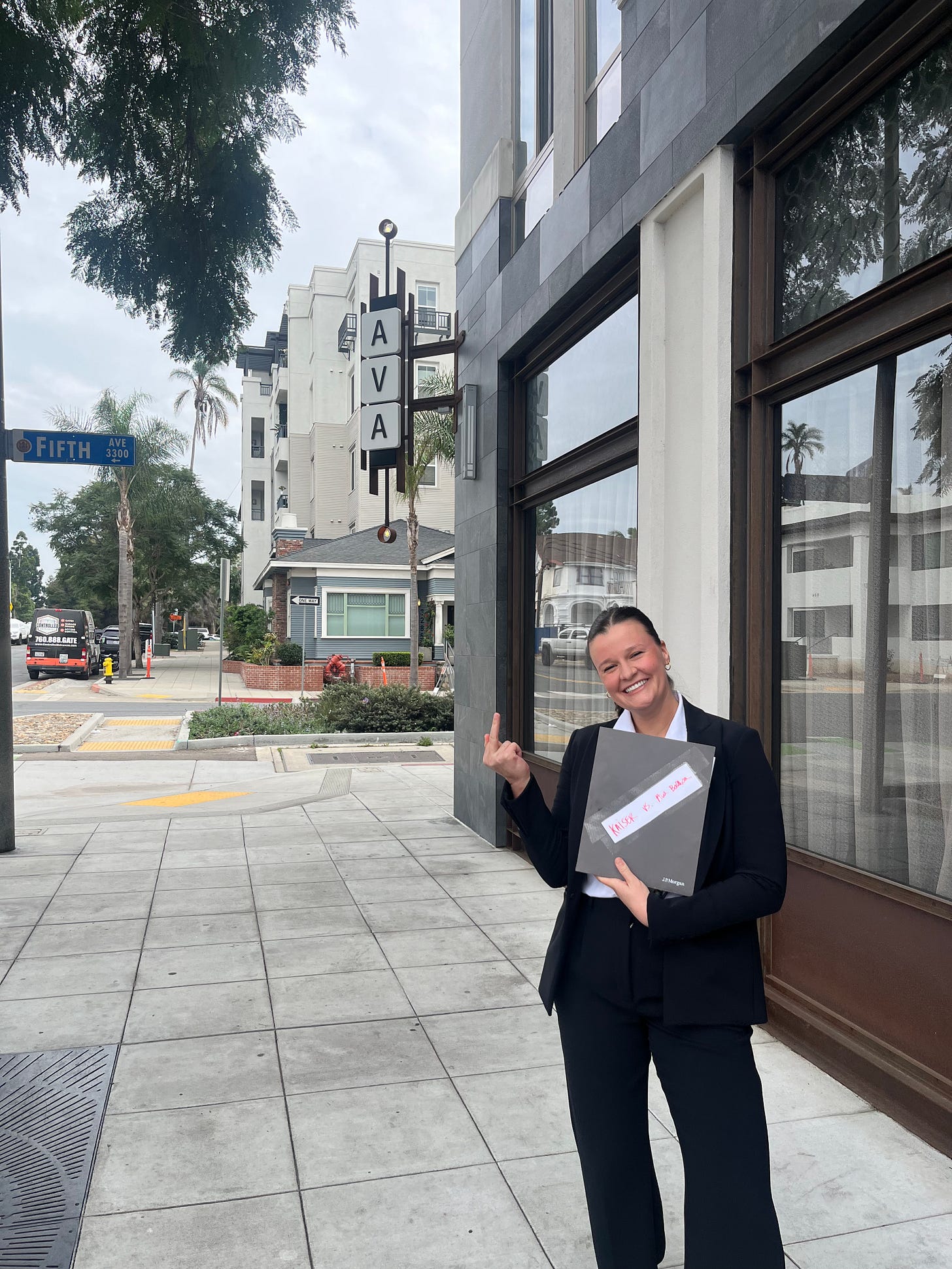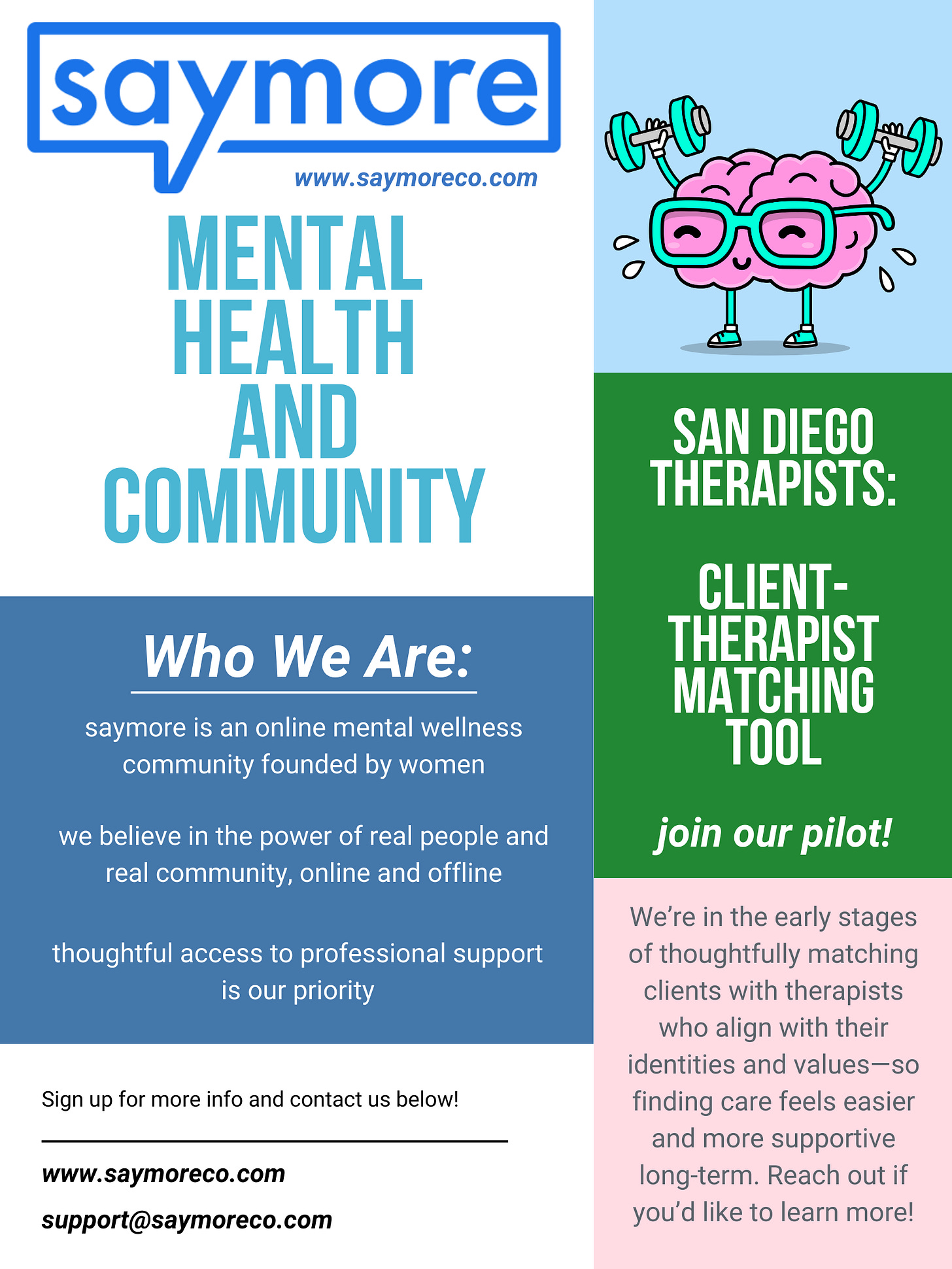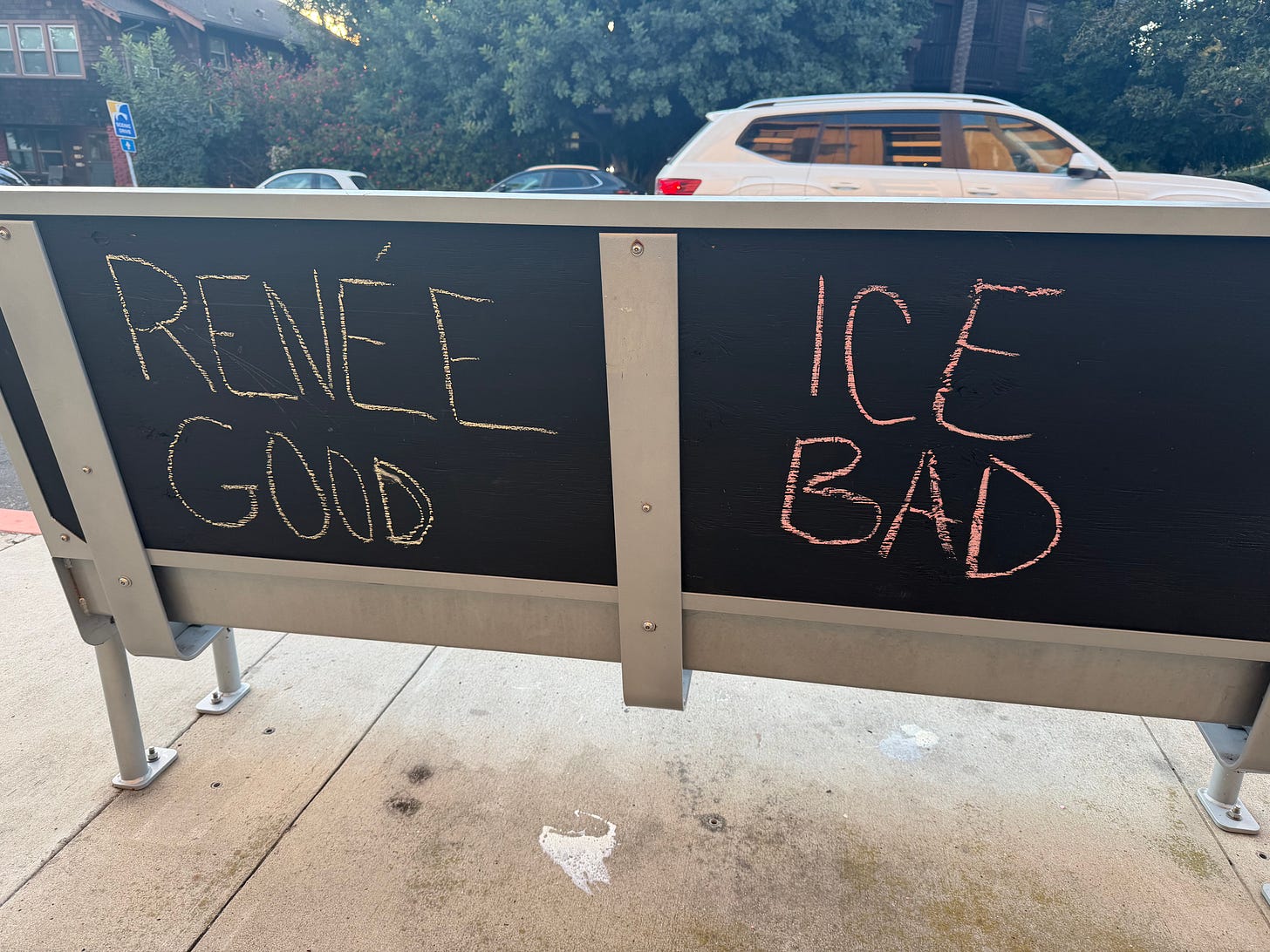The Tiny Moments of Care
I spent the month of January so angry. So anxious. I’ve been trying to get our saymore therapy matching tool off the ground in Southern California, not realizing I have to build the trust first (obvious yes, but also…selfishly… annoying). This month, I sued my apartment complex and won, but the experience was awful and the judge was an asshole. I deleted my social media because it was truly making me sick. People died needlessly… again. Consequences never happened… again. I didn’t write the blog post that month because I was mad, and we have enough anger and aggression in the world right now.
So this month, I wanted to point out moments in my life, with strangers or friends, that showed true moments of care. The tenderness that is just people, when every day feels like people are the enemy.
It’s my dry cleaner telling me to be careful on Sixth Ave - there’s so much construction and nails are ruining tires because they’re left out in the street. It’s the building where my two new queer friends live, filled with single older women who meet at the pizza shop every Friday just to gather. (I have invited myself and it has been the best new ritual in my year so far. Last week at dinner, one woman said she had never heard of Bad Bunny before he was announced for the Super Bowl Halftime Show and now she’s his biggest fan - doesn’t know a lick of Spanish.)
It’s my tax lady telling me she noticed my name on her schedule that day and was so happy to catch up and we only meet once a year. It’s the guy from Syria who came to fix my TV, and told me he loves meeting people, even if they’re a little racist to him at first. It’s getting on a call with a colleague halfway across the world who just got a new job and has debilitating periods where she cannot move for days. When her work told her she still had to come into the office, she said no. Now they let her work from home a few times a month.
It’s the way things change quickly. It’s the way we do care for each other. It’s putting up saymore signs in my neighborhood right under the “Abolish ICE” signs. It’s the walk to breakfast when Lisa is selling plants out of her hair salon and I buy a new pothos for my home.
I want you to hear this from me. The internet is going through a kind of death. Yes, I know… ironic coming from an internet company. But the bots are taking over, and we don’t know what is what anymore, who is real. Really let that sink in — over half the interactions online are bots now. Companies create robots to keep their “engagement” and “traffic” and “news” spinning, spinning, spinning. They have to force opinions and news through machines because not enough real people are buying it anymore. None of this feels real because it is literally not real. It’s time to start over. It’s time to let it all burn.
I want to leave you with one last story from COVID times - stay with me. I’m from Omaha, Nebraska, and when COVID hit, my sisters and I all came back to Omaha to quarantine. We were living in different parts of the country, and it felt like such a rare circumstance to be together again. During that time, I went on a lot of walks like many of us did. I walked the same route every single day, for months.
By summer, we all went back to our respective cities. When Thanksgiving rolled around, I returned to Omaha and one day went on my good old COVID walk again. At one point on my walk, a man came running out of his house and said, “Hey! Where have you been? I haven’t seen you on a walk in a while!” A stranger I had never met, who had simply noticed me walking everyday. I told him I didn’t live there anymore, that I was just home for COVID for a bit, and he said, “Oh good! I was worried something happened to you.” I assured him I was okay and we laughed and waved goodbye until the next time I saw him on my walk. That interaction has stayed with me for so long that I honestly feel like I imagined it sometimes.
I tell that story a lot when I describe Nebraska, but really it’s about all of us, humanity. People notice each other. We don’t always treat each other with care - of course not. But there is so much care there.
And I won’t say, “you just have to look for it,” because that’s not always true. The point is, I am telling you: there is more humanity when you leave your house than you know (and on saymore, too). There is hope…not because of AI, not because of bots… but because they can never replace us or replicate us. And if nothing else, that is the only thing I want you to hear from me this month.

A picture of me in front of my apartment building after winning my court case!! Small claims court baby!

the saymore flyer going around town!

support for Minneapolis from the West Coast